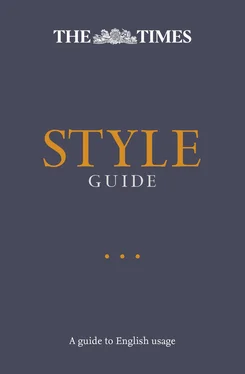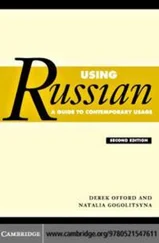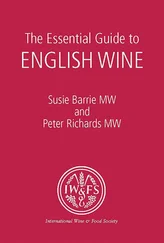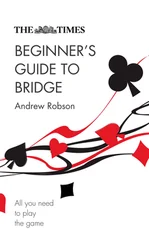apostropheswith proper names/nouns ending in s that are singular, follow the rule of writing what is voiced, eg Keats’s poetry, Sobers’s batting, The Times’s style (or Times style); and with names where the final s is soft, use the s apostrophe, eg Rabelais’ writings, Delors’ presidency; plurals follow normal form, as Lehman Brothers’ loss etc.
Note that with Greek names of more than one syllable that end in s, generally do not use the apostrophe s, eg Aristophanes’ plays, Achilles’ heel, Socrates’ life, Archimedes’ principle; but note Jesus’s (not Jesus’) parables. Beware of organisations that have variations as their house style, eg St Thomas’ Hospital, where we should respect their preference.
Take care with apostrophes with plural nouns, eg women’s, not womens’; children’s, not childrens’; people’s, not (usually) peoples’. Also beware of moving the apostrophe when creating plurals: a lot of shepherd’s pies, two rival builder’s merchants, two private member’s bills, etc.
Use the apostrophe in expressions such as two years’ time, several hours’ delay etc.
Some place names and many company names have lost their apostrophes: Earls Court, St Andrews, Barclays, Lloyds the bank (but Lloyd’s the insurance market), Morrisons etc; others — Sainsbury’s, Sotheby’s, Christie’s etc — have not; always check.
An apostrophe may for clarity be used to indicate the plural of single letters — p’s and q’s — if the alternative seems worse; a rare instance of a permissible greengrocer’s apostrophe. See also do’s and don’ts
apothegmmaxim; prefer to apophthegm
apparatchik
appealdo not use the Americanism “appeal a verdict or decision”; English usage requires appeal against
appellations, titles, honorifics, nameson News pages, although not on Features and Sport, almost every adult surname should be granted the courtesy of a title. Give the name in full at first mention, then refer to Mr, Mrs, Ms. There may be occasions when it is more appropriate at second mention to use just a first name (Bob, Sue etc). Such occasions will be rare; they require justification and careful thought.
The exceptions, who may be referred to by surname alone are: convicted offenders (or, rarely, offenders still on trial but who have clearly admitted guilt, see 6below), the dead (but not the quite recently dead, except in obituaries; in news reports be particularly sensitive when writing about victims of crime); and, mostly in the Arts, Sport, Books and Diary sections, where common usage omits a title. On News pages, similarly, sportsmen, artists, authors, film stars, pop stars, actors etc should now normally not be referred to as Mr/Mrs/Ms, except in court cases or exceptional occasions where guilt would be implied by omitting the honorific. Where sportsmen, entertainers etc have been given honours, it will often seem more natural to refer to them by their full title once at first mention (“Sir Mick Jagger”) and thereafter as “Jagger” (rather than “Sir Mick”). Minors may when appropriate be referred to by first name alone.
General rules:
1. First mention, Herbert Palfry, Juliette Worth, subsequently Mr Palfry, Mrs/Miss/Ms Worth; only children should be referred to by first names alone.
2. Put the name first, then the age (if relevant), then the description; eg Penélope Cruz, 34, the Spanish actress; avoid the journalese construction “actress Penélope Cruz” or the like.
3. Avoid initials and middle initials (as in eg American names) unless the person is best known thereby (eg WG Grace, PJ Harvey, JK Galbraith, Cecil B DeMille, AJP Taylor, all with no full points).
4. Ms should be used when a woman wants to be called thus, or when it is not known for certain if she is Mrs or Miss.
5. Dr need not be confined to medical doctors; if a public figure with an academic doctorate from a reputable university insists on being called Dr, we can allow them the title as a courtesy, although we should discourage this unless the doctorate (and the expertise it suggests) is of some interest or relevance to the story. Generally, as for Mr/Mrs/Miss/Ms, do not use Dr at first mention.
6. Court proceedings, professional body disciplinary hearings etc: accused people should be accorded the appropriate title (Mr, Miss etc), however guilty they may appear, after name and first name have been given at first mention; only convicted persons or those who have admitted guilt in recognised legal or disciplinary proceedings should be referred to by surname alone. But do be sensitive especially in murder cases, where the accused is given, for example, his “Mr”; the victim (despite the dead not usually being given a title) should here be accorded the courtesy of the title. Otherwise the stark contrast of, say, Mr X being accused of the murder of Dando, can appear gratuitously offensive
appendixplural appendices , but appendixes in anatomy
Apple Computernot Computers, for the Mac company
appraisemeans evaluate; apprise means inform. Never confuse
appurtenance
April Fool’s Day, April fool, but All Fools’ Day
aqueductnot aquaduct
Arabicrefers to the language. Use Arab in such phrases as “the Arab world”
Arabic namesthere is no universally accepted system of transliteration. Arabic has 28 letters, many of which change shape, sometimes considerably, depending on whether they stand alone or on where they appear within a word: initial, medial, final. Vowels are largely ignored in most printed and handwritten text. There are ligatures and diacritical marks by the dozen. There are consonants with no direct counterparts in English, and sounds with no obvious equivalents at all.
Attempts to replicate these complexities (with elaborate spellings and much use of apostrophes) are confusing and look a mess. Clarity, simplicity and a degree of consistency should be our aims. Where there is a western consensus on a spelling, eg among reputable news agencies, big media outlets and/or diplomatic sources, we should follow it, except in the very few cases where a different preferred spelling is specified in this guide. For other cases these are some very basic guidelines:
prefer al- to el- or Al (and to variants such as as- ash- ad- or ul-) unless an individual or corporation is established in the West and has a preferred or familiar western style (eg Al Jazeera, the broadcaster, or Saudi royals who are Al; also Mohamed Al Fayed, who may or may not be entitled to style himself thus, but does). Drop al- when not giving the full name (eg Bashar al-Assad becomes Assad)
end names in i not y ( Ali , not Aly etc)
do not use the apostrophe in eg Ba’ath
do not generally attempt to distinguish long and short vowels, but in common names with long vowels generally prefer ee to i (eg Rasheed rather than Rashid; Fedayeen , not Fedayin; Mujahideen ); prefer ou to u or oo (eg Yousef, Mansour etc)
prefer q to k or kh ( Rafiq, qat )
abu, abd, abdul, bin, bint : these are not self-contained names but words meaning “father of”, “slave of” etc. Usually lower case, except as the first word of a name, they attach to the name that follows and must not be separated, eg Abu Qatada remains Abu Qatada, Osama bin Laden becomes bin Laden)
Arab Springcap for the uprisings at the start of 2011 in north Africa and the Middle East
arbitrate, arbitrationdo not confuse with mediate, mediation . An arbitrator hears evidence from different parties then hands down a decision; a mediator listens to the different arguments then tries to bring the parties to agreement
Читать дальше












